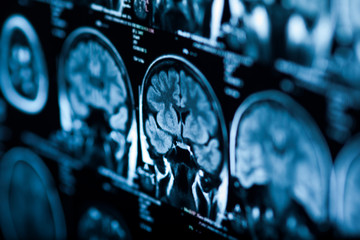
Findings from several pilot studies have led many to believe that just 8 weeks of Mindfulness-Based Stress Reduction (MBSR) can induce measurable brain structural changes. These changes, if true, would be important to highlight the mechanisms underlying gains in attention and emotion regulation after individuals participate in MBSR.
MBSR studies that show structural brain changes, however, rely on small participant samples and either use participants as their own controls or lack active controls. Such preliminary study designs tend to err on the side of detecting effects that are not always genuine or robust.
Kral et al. [Science Advances] attempted to replicate the previous findings that showed brain structural changes occurring after MBSR. The investigators pooled Magnetic Resonance Imaging (MRI) data from two previously published studies that had sufficient sample sizes and used randomization to groups as well as an active control comparison condition. Pooling data from two studies can increase power to detect significant brain change differences by study group.
The researchers pooled then analyzed data from two published studies (N=218, average age = 46; 61% female; 84% Caucasian). Participants were drawn from a non-patient population and were meditation naïve. They were randomly assigned to a standard 8-week MBSR program, a Health Education Program, or a wait-list control. MBSR and Health Education
Programs were matched on the number and length of group classes and the amount of homework assigned. The Health Education Program included exercise, music therapy, and nutrition education and practice.
Participants were assessed at baseline and post-intervention on a variety of psychological measures including the Five Facet Mindfulness Questionnaire, and on MRI scans that yielded brain structural measures of gray matter density, gray matter volume, and cortical thickness. Brain regions of interest included the amygdala, hippocampus, cerebellum, posterior parietal cortex, temporal-parietal junction, caudate, and insula.
The pooled results showed no significant between-group differences on any brain structural changes in the areas of interest. The only significant result was an association between the amount of MBSR home practice and reduced right amygdala volume (partial η2=0.08), but there was no significant group x home practice time interaction.
While brain structure remained unchanged, previously published data from these studies showed significant between-group differences in mindfulness, psychological well-being, and brain region functional connectivity.
This replication analysis of pooled data from two controlled trials does not support results from previous studies showing that 8-weeks of MBSR induces structural brain changes. The study does not rule out the possibility that longer amounts of mindfulness practice, beyond eight weeks, may induce structural brain changes.
The study is important in that it underscores the importance of conducting well-controlled replication studies before pilot study results can be interpreted with confidence.
Reference:
Kral, T. R. A., Davis, K., Korponay, C., Hirshberg, M. J., Hoel, R., Tello, L. Y., Goldman, R. I., Rosenkranz, M. A., Lutz, A., & Davidson, R. J. (2022). Absence of structural brain changes from mindfulness-based stress reduction: Two combined randomized controlled trials. Science Advances.
Link to study